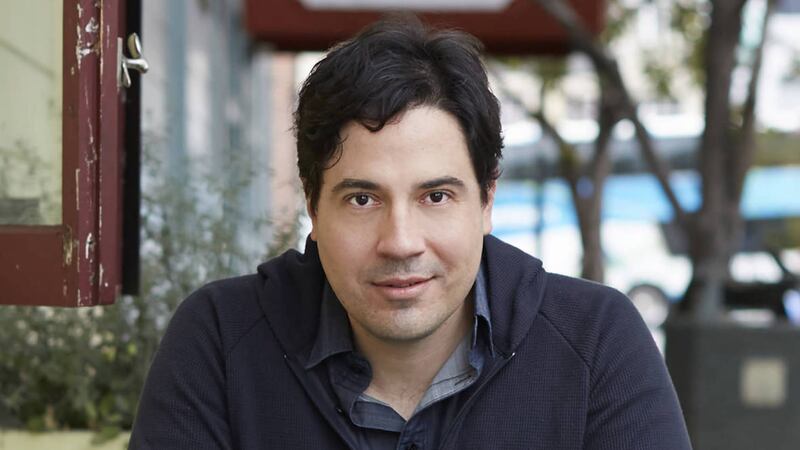Silicon Valley doesn't have a code of silence—but it does have a code of optimism. In public, Mark Zuckerberg is always considered a genius. Sheryl Sandberg is amazing, and Jeff Bezos and Steve Jobs are brilliant minds with no personality flaws.
That's not the case with Antonio Garcia-Martinez' delicious bestselling Chaos Monkeys: Obscure Fortune and Random Failure in Silicon Valley.
Garcia-Martinez is a rare sort of tech insider—a Goldman Sachs quantitative strategist who fled New York, moved to Silicon Valley, founded a startup, got accepted at storied incubator Y combinator, sold his company to Twitter, joined Facebook as a product manager and decided to write an unsparing tell all about all the money and toys and the humans behind them.
The result is a book that the NY Times called "an irresistible and indispensable 360-degree guide to the new technology establishment."
"Anyone who claims the valley is meritocratic is someone who has profited vastly from it via nonmeritocratic means like happenstance, membership in a privileged cohort or some concealed act of absolute skulduggery," he writes in Chaos Monkeys, adding "the tech start-up scene, for all its pretensions of transparency, principled innovation, and a counterculture renouncement of pressed shirts and staid social convention, is actually a surprisingly reactionary crowd."
"The book isn't nice," he has said, " because Silicon Valley isn't a nice place."
Garcia-Martinez will talk candidly about his Silicon Valley experience at Techfest NW 2017 at the Portland Art Museum on March 23-24. We chatted with him recently about his book.
You've compared working in tech—for companies like Facebook—to Communist Cuba in 1965.
I don't know how much you know about these mission-driven companies, but they're all very cultlike. There are literally social-realism posters with aphorisms on the wall, and a cult of personality about Zuckerberg, and people getting lectured by the great leader. Early employees are revered and are much better off, others come later.
So early employees reap rewards of later labor, like in a pyramid scheme?
Well, no. But the way equity compensation works—if you win the company lottery and the company does well, there's a huge divide. You've got people on the same places in the org chart with similar roles, but very different lifestyles.
You refer to cult of optimism in tech—do you worry that with your book you've breached that? Could you work in tech again?
There's a cult of optimism, and that's a reason there aren't many insider books— it's not that legally you can't. The NDAs aren't restrictive. It's considered impolitic to write an accurate but unvarnished about what meetings with Sheryl are like.
Is the tech community's addiction to optimism harmful?
Yes and no. It's unhealthy, but in some senses almost necessary. The optimism in Silicon Valley is like the patriotism in a WWI trench—you need it, otherwise no one would leave the trench for fear of getting machine-gunned.
It's like a religion. If everyone believes it, it kind of becomes true. If everyone believes in this optimism that we're taking over the world maybe we will make something creative. If [investors] believe they can get more money, they'll write a large check. And maybe that company actually does create something novel down the line. Maybe it's one company in 10 that actually makes it.
But Silicon Valley does create cool things, right?
Not as cool as what Silicon Valley thinks it's making! We were promised flying cars, and instead we got 140 characters. The high school fantasies didn't quite come to fruition. Silicon Valley isn't as important as it likes to think it is. Amid the venality and the bullshit there are people like Elon Musk who are doing cool things. But in society, on the whole, you'd rather have optimism than cynicism.
So what are you working on now?
Good question—in a capitalist society you can't say you're unemployed. The marketing for [Chaos Monkeys] only lit off a couple months ago. I'm homesteading this property up in the Pacific Northwest. I wrote a book on the San Juan islands—I ended up actually buying property there. I plopped five acres on there and lived there for most of the fall until it got cold.
I've been quoted as a techie survivalist—it's true there's a vein of survivalism or apocalyptic paranoia that exists in Silicon Valley.
So let's say a hotshot 19-year-old wants to work in tech and change the world. What's your advice?
Don't read my book, that's for sure—reading my book would be like reading All's Quiet on the Western Front in boot camp.
I'm joking: Parents bought it for their kids as they go off to college, and people in tech have bought it for their family to explain what they do.
What other advice? He's 19, his ideas are probably shit. He should probably get a job at a large high quality company like Google or Facebook, and cool his idea to work for young, hot companies. He'll work there, see how they do things, and learn that big companies are populated by people who get distracted and make mistakes—and then go out and do his own thing.
TechfestNW will be held at the Portland Art Museum March 23-24, 2017. For information and tickets, go to techfestnw.com.
